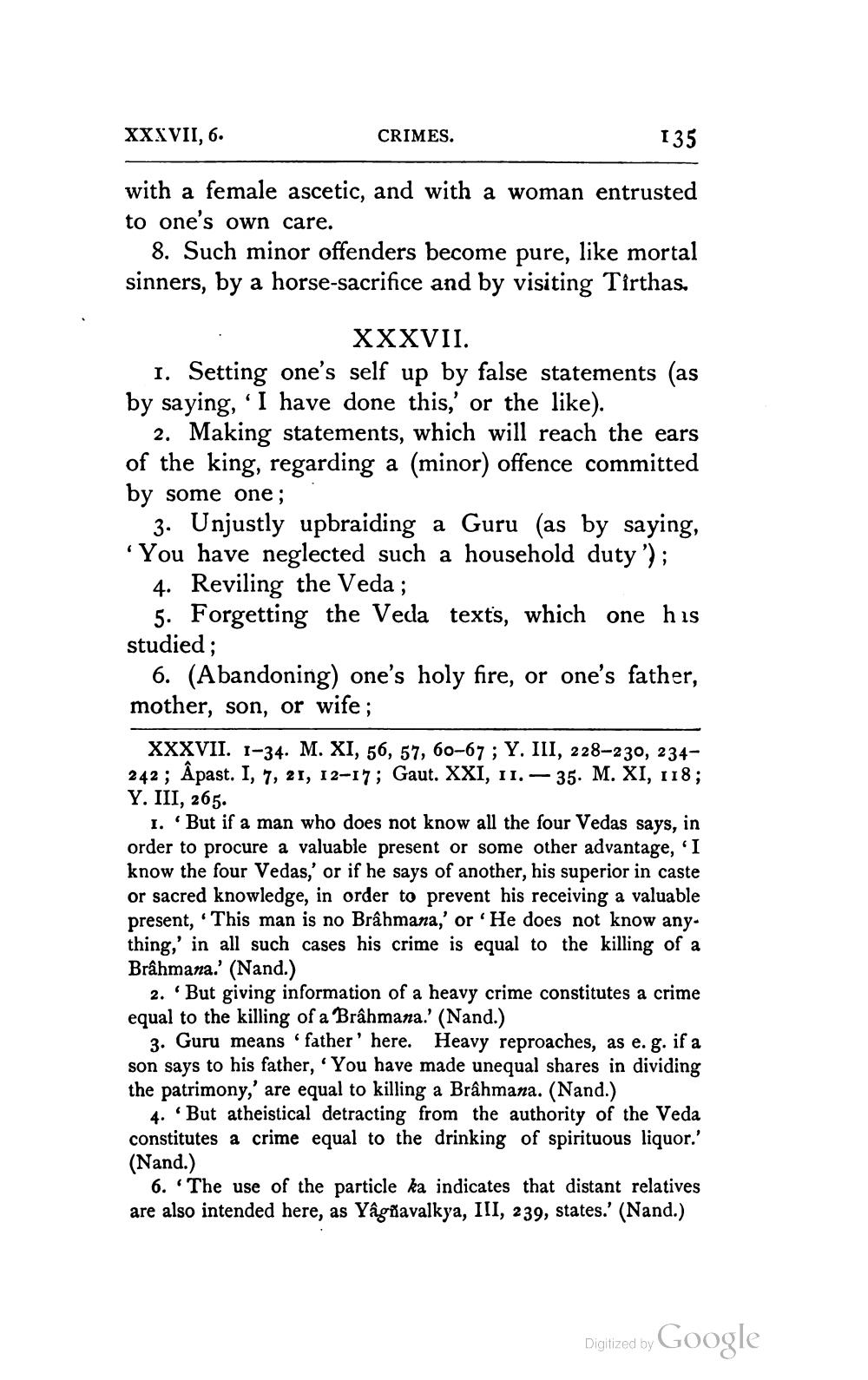________________
XXXVII, 6.
CRIMES.
135
with a female ascetic, and with a woman entrusted to one's own care.
8. Such minor offenders become pure, like mortal sinners, by a horse-sacrifice and by visiting Tirthas.
XXXVII. 1. Setting one's self up by false statements (as by saying, 'I have done this,' or the like).
2. Making statements, which will reach the ears of the king, regarding a (minor) offence committed by some one;
3. Unjustly upbraiding a Guru (as by saying, You have neglected such a household duty'); 4. Reviling the Veda ;
5. Forgetting the Veda texts, which one his studied;
6. (Abandoning) one's holy fire, or one's father, mother, son, or wife ;
XXXVII. 1-34. M. XI, 56, 57, 60-67 ; Y. III, 228-230, 234242 ; Âpast. I, 7, 21, 12-17; Gaut. XXI, 11. - 35. M. XI, 118; Y. III, 265.
1. But if a man who does not know all the four Vedas says, in order to procure a valuable present or some other advantage, ‘I know the four Vedas,' or if he says of another, his superior in caste or sacred knowledge, in order to prevent his receiving a valuable present, .This man is no Brâhmana,' or 'He does not know any. thing,' in all such cases his crime is equal to the killing of a Brâhmana.' (Nand.)
2. But giving information of a heavy crime constitutes a crime equal to the killing of a Brahmana.' (Nand.)
3. Guru means 'father' here. Heavy reproaches, as e. g. if a son says to his father, You have made unequal shares in dividing the patrimony,' are equal to killing a Brâhmana. (Nand.)
4. But atheistical detracting from the authority of the Veda constitutes a crime equal to the drinking of spirituous liquor.' (Nand.)
6. The use of the particle ka indicates that distant relatives are also intended here, as Yâgñavalkya, III, 239, states.' (Nand.)
Digitized by Google




